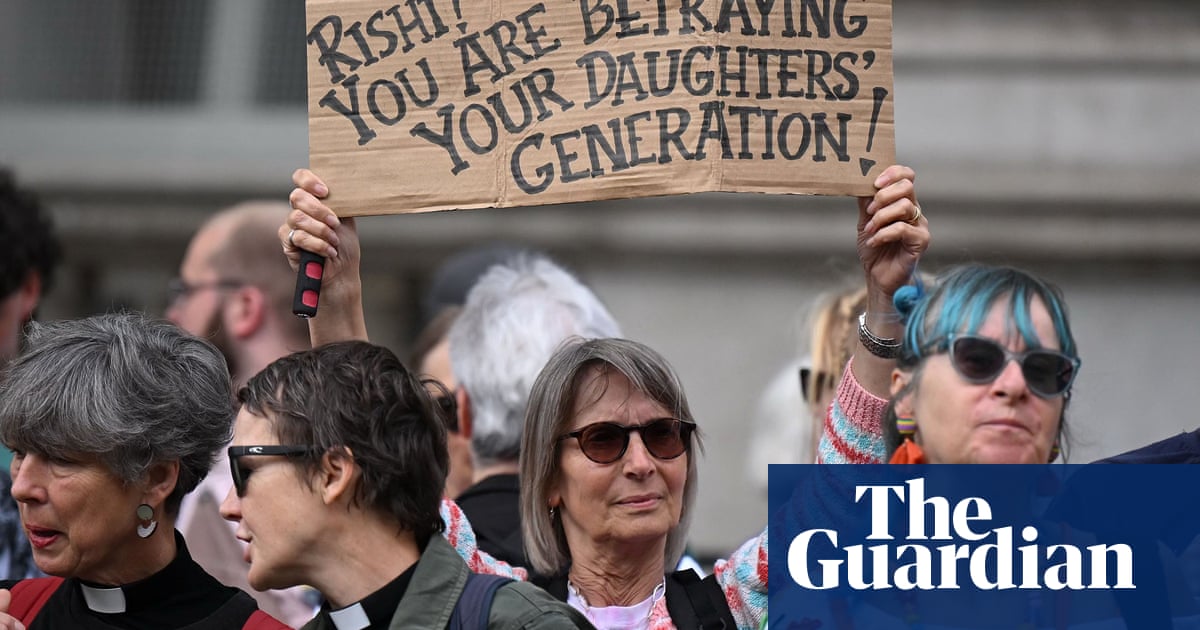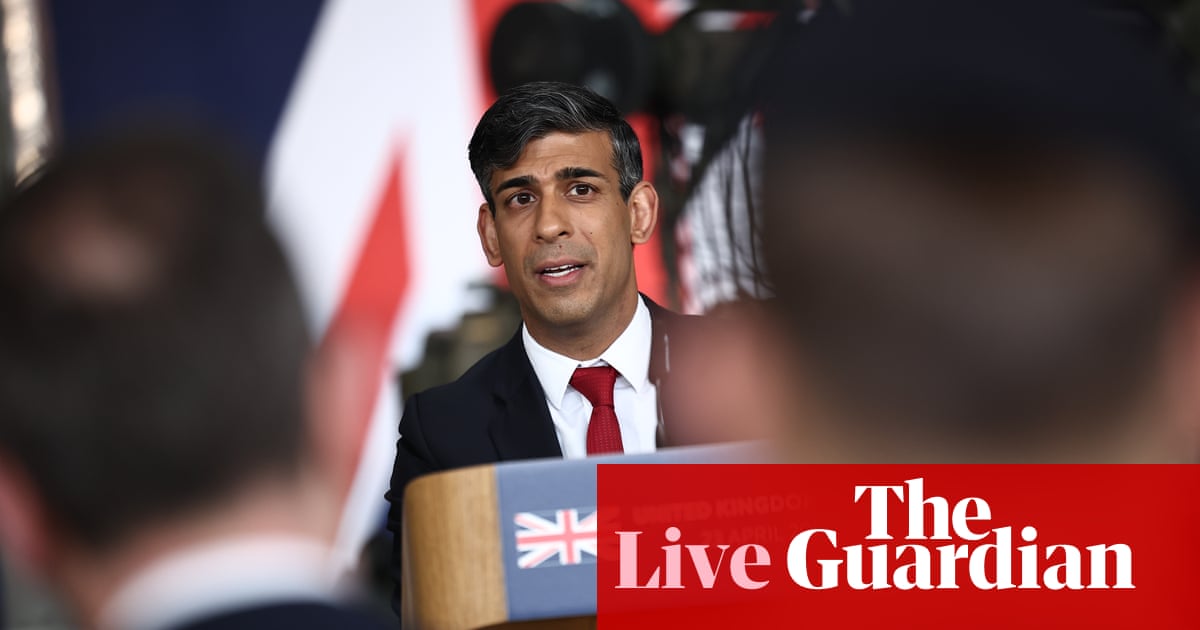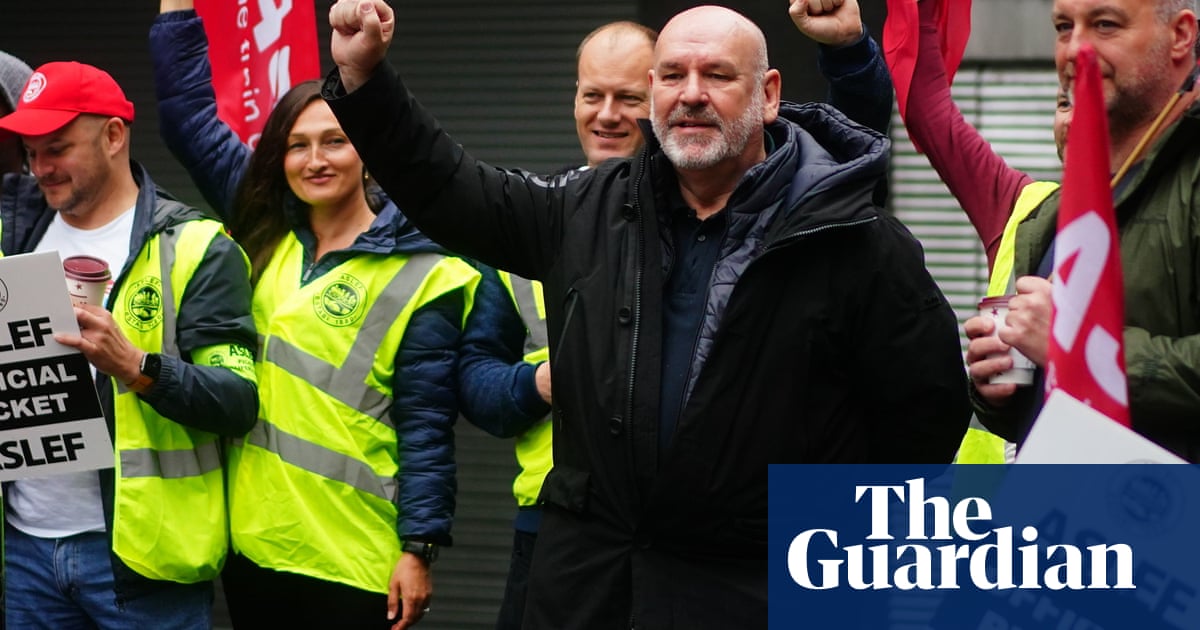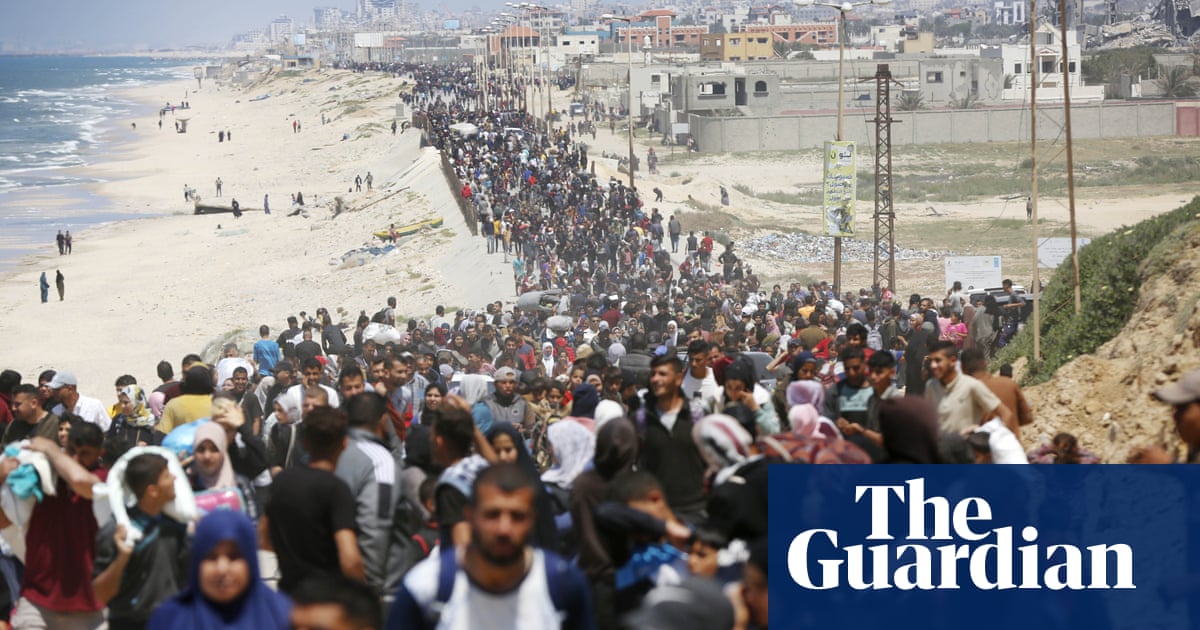
The standoff between UK ministers, bosses and unions over pay showed no sign of reaching resolution on the first day of four weeks of planned rail strikes by thousands of rail workers.
RMT members will again bring train services around Britain to a halt on Wednesday, while Royal Mail workers in the CWU will carry out their third of six days of walkouts in the run-up to Christmas. Nurses are due to start strike action on Thursday.
Rishi Sunak reiterated that the government was unable to shift its position on pay, implying that the only way to end the widespread strikes across the railway and other sectors would be for unions to back down.
In comments to his cabinet, the prime minister said: “While the government will do all we can to minimise disruption, the only way we can stop it completely is by unions going back around the table and calling off these strikes.”
Rail bosses and unions signalled they would not budge in the pay dispute, with the general secretary of the RMT, Mick Lynch, saying there was “no deal in sight”.
The latest wave of strikes across the network by 40,000 members of the RMT at Network Rail and at 14 train operators left passengers facing severely reduced services. Another 48-hour strike follows later in the week.
Sunak told ministers that the winter would be “a challenging period to get through”, an official readout of his comments said. He said the government had been “fair and reasonable” in agreeing independent recommendations for public-sector pay rises, “and in facilitating further discussions with the unions and employers”.
His official spokesperson said there were plans to mitigate any disruption, but it was “for unions to decide whether they want to keep inflicting this sort of damage on the public”.
The transport secretary, Mark Harper, said people faced another Covid-style “virtual Christmas” as a result of the industrial action, with an overtime ban at train operators also affecting passenger services through the rest of the month until strikes in early January.
Lynch said the union would press ahead with strikes and “review at the end of that if there’s no settlement on the table and we’ll decide what our next steps are, but at the moment there is no settlement to be had”.
The strike left about a fifth of normal train services running around the country on Tuesday. Trains will continue to run only between 7.30am and 6.30pm on Wednesday, with a reduced service on main intercity and urban lines, and no trains at all in much of rural England, Scotland and Wales.
Network Rail has urged passengers to seek alternative travel or to plan ahead and check with operators for the latest information on services. Disruption should also be expected in the morning of the day after each strike.
Harper did not deny that the government had intervened to scupper a possible deal between the RMT and train operators. Speaking on the BBC, he declined to answer questions on whether the government had insisted on adding controversial driver-only operation clauses, but replied: “Reform has been on the table all the way through this process.”
The former transport secretary Grant Shapps, who is now the business secretary, told the Commons business select committee later on Tuesday that “productivity improvements” and modernisation were needed to boost pay in rail and Royal Mail. He added: “The worst thing that we could do is follow the 1970s, which is to chase inflation and then end up not beating it. And then everybody is in a worse place.”
He said the government wanted to raise pay across the public sector but claimed: “If you were to simply say yes we’ll do this, this and this … the upshot is everybody’s taxes will need to go up, we think by about £25bn.”
The RMT’s membership voted to reject an improved offer from Network Rail in a referendum, whose result on Monday confirmed strikes would go ahead. Network Rail said the deal, of 9% over two years with staff travel benefits and a guarantee on jobs until 2025, was its “best and final offer”. The union leaders opposed the offer because of significant changes to working practices.
Another union, Unite, voted to accept the offer from Network Rail. A third union, TSSA, has suspended industrial action while it ballots its members.
Lynch said the changes Network Rail wanted to impose would cut 50% of the maintenance regime on the railway and force staff to work more nights and weekends.
The Network Rail chief executive, Andrew Haines, struck a pessimistic note. “Where I stand today, I’d have to say that with the level of disruption the RMT are imposing, the way forward isn’t obvious,” he said.
The RMT national strikes take place on 13-14 and 16-17 December, while the overtime ban across 14 train operating companies will affect services from 18 December until 2 January, before more strikes on 3-4 and 6-7 January. A Network Rail strike from 6pm on 24 December to 7am on 27 December will bring passenger trains to an earlier end on Christmas Eve, but mainly affect engineering works.
The Office for National Statistics said 417,000 working days were lost to labour disputes in October, the highest number since November 2011. Nurses prepare to go on strike on Thursday, as the Royal College of Nursing general secretary, Pat Cullen, said staff were “not getting an extra penny” despite talks on Monday.
Royal Mail workers will resume two days of strikes on Wednesday after six days of action in the last few weeks, with two more to follow just before Christmas.
One place where resolution appears to have been reached is at Felixstowe, the UK’s biggest container port, which saw strikes through the summer. Its owner, Hutchison Ports, said a pay deal of 8.5% had been accepted.












